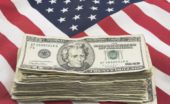Molly Minturn - My family is heartbroken to share that my father died in surgery on Monday, Feb. 10. It…
Wednesday Night #1894 with Peter Berezin
Written by Diana Thebaud Nicholson // June 27, 2018 // Wednesday Nights // Comments Off on Wednesday Night #1894 with Peter Berezin
Welcome back, Peter!
In his latest report, he warns that:
Three macro “policy puts” are in jeopardy of disappearing or, at the very least, being repriced.
- Fed Put: Rising inflation has made the Fed more reluctant to back off from rate hikes at the first hint of slower growth or falling asset prices.
- China Put: Worries about high debt levels, overcapacity, and pollution all mean that the bar for fresh Chinese stimulus is higher than in the past.
- Draghi Put: Bailing out Italy was a no-brainer in 2012 when the country was the victim of contagion from the Greek crisis. But now that Italy is the source of the disease, the rationale for intervention has weakened.
- These factors, along with additional risks such as mounting protectionism, warrant a more cautious 12-month stance towards global equities and other risk assets. The fact that valuations are stretched across most asset classes only adds to our concern.
- A neutral stance does not imply that we expect markets to move sideways. On the contrary, volatility is likely to increase over the balance of the year, with the next big move for global equities probably being to the downside.
Before you come to WN, you may want to listen to Bank of Canada Governor Stephen Poloz’s speech which he will deliver in Victoria at 3:15 PT
Peter’s much anticipated return to Wednesday Night comes at a time when we find ourselves overwhelmed by the daily news dominated by reports of one crisis after another.
As David A. Graham points out in his recent piece in The Atlantic: Why Trump Keeps Creating Crises , Trump thrives on crises . “Trump has started a multi-front trade war, which escalated this week when the president announced plans for a second round of $200 billion in punitive tariffs against China, which promised to respond in kind. Farmers, some of whom were Trump’s strongest supporters, are starting to get upset about the damage the trade war could inflict on them. For the White House, the game plan seems simple, if not easy to execute: Create a trade war, solve it (either by cowing China or by somehow compensating farmers), and then declare victory and take credit. If it turns out that winning trade wars is not as easy as he has said, however, the president can always just concoct a new crisis.”
BUT to add to the confusion of the average observer, the Koch brothers are not happy with Trump’s trade wars (see Koch Brothers Groups Will Spend Millions Fighting Trump’s Trade War)
In addition to calling for the removal of the steel and aluminum tariffs, the Koch network will also use the campaign as a mechanism to urge Trump to modernize the North American Free Trade Agreement (NAFTA), resume negotiations on the Trans-Pacific Partnership (TPP), and lift proposed tariffs on imports from China. The campaign, which will include advertisements, lobbying, and grassroots mobilization, calls on Congress to implement measures that would give lawmakers broader oversight over the implementation of tariff policies.
The flip-side of the Koch coin?
Meet the Economist Behind the One Percent’s Stealth Takeover of America
Nobel laureate James Buchanan is the intellectual linchpin of the Koch-funded attack on democratic institutions, argues Duke historian Nancy MacLean
Efforts to “reform” public education and Social Security are not just about a preference for the private sector over the public sector, she argues. You can wrap your head around those, even if you don’t agree. Instead, MacLean contends, the goal of these strategies is to radically alter power relations, weakening pro-public forces and enhancing the lobbying power and commitment of the corporations that take over public services and resources, thus advancing the plans to dismantle democracy and make way for a return to oligarchy. The majority will be held captive so that the wealthy can finally be free to do as they please, no matter how destructive.
Tony Deutsch comments:
Just a quick note about the late Jim Buchanan.(Yes, the same family.) To associate him with Trump is a travesty. J.B. was one of those people who, while very humble in manners, made the room light up when he entered. He was given his Nobel for his seminal work in Public Choice Theory, which put the George Mason Economics Department on the map. To list him and Friedman with Charles Koch is the same as listing Einstein and Bohr with my Grade Five Physics teacher.
The article on Economics you referenced might be fun material to discuss with a roomful of professional academic economists. I suspect that the writer might not come out too well
And there is this: The Koch brothers scandal at George Mason University
At the beginning of May 2018, there was a brief furor over donations from Koch family-affiliated philanthropies to fund the Mercatus Institute and the newly-named Antonin Scalia School of Law at George Mason University (GMU). … the silence of the economics profession concerning the revelations was pretty deafening. Briefly, I would like to revisit why this was so and why it matters.
Iran sanctions
In case you don’t believe there’s enough to worry about, the U.S. announced that it will impose sanctions against all importers of Iranian oil by Nov. 4, a surprisingly tough position that roiled oil markets and is likely to further alienate allies and adversaries alike. The Trump administration may be signaling an unusually tough position to gain leverage ahead of the first official meeting in Vienna of the remaining signatories to the Iran nuclear deal, but following Washington’s withdrawal from the deal, European allies vowed to resist reimposing of sanctions. And in the midst of an increasingly bitter trade war with China, the likelihood that Beijing will entirely end its imports of Iranian oil is dubious, analysts said.
The immigration crisis that is running in parallel has not turned out so well for the Administration. Trump’s impetuosity and lack of knowledge of the legal precedents has once again caused problems. So now the Republicans press ahead with narrow fix to migrant crisis created by Trump all but abandoning efforts for a far-reaching immigration overhaul that would fund a border wall and deal with the fate of young undocumented immigrants. … deeply divided Republicans say they have little hope of rallying support for a broad package of reforms. However, GOP leaders are eager to adopt legislation that would make sure migrant children can remain with their parents at the border. Haunting images of children in metal cages and reports of the government struggling to reunite families have touched off an international outcry.
However, Tuesday’s Supreme Court (SCOTUS) decision in Trump v. Hawaii to uphold President Donald Trump’s travel ban is deeply troubling. It’s Donald Trump’s Supreme Court Now and as the Washington Post analysis suggests, the ruling could embolden Trump in remaking the U.S. immigration system –further testing the limits of his statutory authority to enforce border-control laws without explicit approval from lawmakers. Ominously. aides have promised new measures ahead of the midterm elections in November, and Trump ruminated this week about the power to turn away unauthorized immigrants without offering them due-process rights.
We had the privilege of attending Foreign Affairs Minister Chrystia Freeland’s excellent speech at CORIM last Wednesday. While she remains (publicly) confident that the NAFTA negotiations will be brought to a fruitful conclusion, we can only hope that she is right. We admire her dogged pursuit of the goal of a modernized NAFTA and hope for success. One factor that Canadian media have not spent any time on could be Mexico’s Presidential election, which will be held on Sunday July 1st Like the media, you may not have been paying much attention to this election (after all, we have our own preoccupations), but you might benefit from a careful reading of Political Risk Analysis: What To Expect After Mexico’s 2018 Presidential Election
Meanwhile it’s a new era for Turkey as Recep Tayyip Erdogan becomes country’s first executive president with sweeping new powers although the fact that his Justice and Development Party (AK Party) lost its majority may curb attempts to introduce more extreme constitutional changes. Writing on Friday before the election, The Guardian’s Simon Tisdall pulled no punches Bully-boy Erdoğan is a threat to Turkey – and the world Writing for Brookings, Kemal Kirişci is somewhat more optimistic: “Unless Erdoğan addresses Turkey’s mounting domestic and foreign policy problems, he and his party will be vulnerable at the local elections in March 2019. To truly sustain his victory, he will need to tone down his populistic rhetoric and cooperate with a parliament that is now much more diverse. “ (How to read Turkey’s election results) Sinan Ülgen writes on Project Syndicate “Erdoğan’s performance as Turkey’s executive president will therefore depend on his ability to chart a trajectory that satisfies the MHP’s main priorities and addresses the adverse consequences of economic overheating. Both constraints are likely to become stronger over time, with the MHP increasingly emboldened by its parliamentary leverage, and the economy in growing need of a potentially contractionary adjustment.” (Erdoğan the Magnificent)
Tony Deutsch recommends Anatole Kaletsky’s Nationalism Will Go Bankrupt – The opposite of populist nationalism is not globalist elitism; it is economic realism. And in the end, countries such as Britain, the United States, and now Italy will learn the hard way that reality always eventually wins. We are not sure whether this is intended to cheer us up or scare us even more than daily events are doing.
Varia
Celine Cooper: Ensuring social media and politics aren’t a toxic mix
As Quebec parties head out on the campaign trail, they should consider adopting a code of conduct for digital campaigning
The automation of politics — from the use of algorithms and automatic accounts (bots) that monitor, predict and shape users’ online behaviour, to “fake news,” and the alleged Russian interference in the 2016 U.S. election — should have political parties here thinking about the risks, benefits and responsibilities of using social media in their efforts to sway public opinion, and get into office.
More than ever, we need to have a critical discussion about the role of social media in shaping our political discourse and beliefs.
Social Media Is Good for Democracy
Critics argue that rather than uniting and informing, social media deepens social and political divisions and erodes trust in the democratic process. Will the power of social media yet be harnessed and used as an unprecedented force for good in the world? Or do systemic platform flaws pose an irreversible threat to the world’s democratic institutions? Listen to the debate.
A great Canadian story that restores our faith in (Canadian) humanity
Four speckled bird’s eggs and a very protective mother confound huge music festival
Nestled in a patch of cobblestone right where a main stage is set to be built are four small speckled bird eggs. Guarding them is one very protective mother killdeer.
Rapidly expanding fact-checking movement faces growing pains
Facebook has enlisted 24 fact-checking organizations in 14 countries to help weed out fake news on the social network, while policymakers and parliamentarians in Brazil, Italy and Spain, and at the European Union, have sought advice from fact-checkers on the challenge of misinformation. Google now highlights fact checks in its search results and Bing has developed a special fact-checking page that features recent fact checks. Who knew?
Brownstein: Montrealer’s Trump wine hits all the right notes
“I just wanted to make a simple wine with a message,” says Montreal winemaker John Bambara about the elegantly robust Fck Trmp aligoté.
“It has an amazing, luminescent texture,” notes Liverpool House sommelier James Simpkins. “No one has ever sent back a glass of this.”



